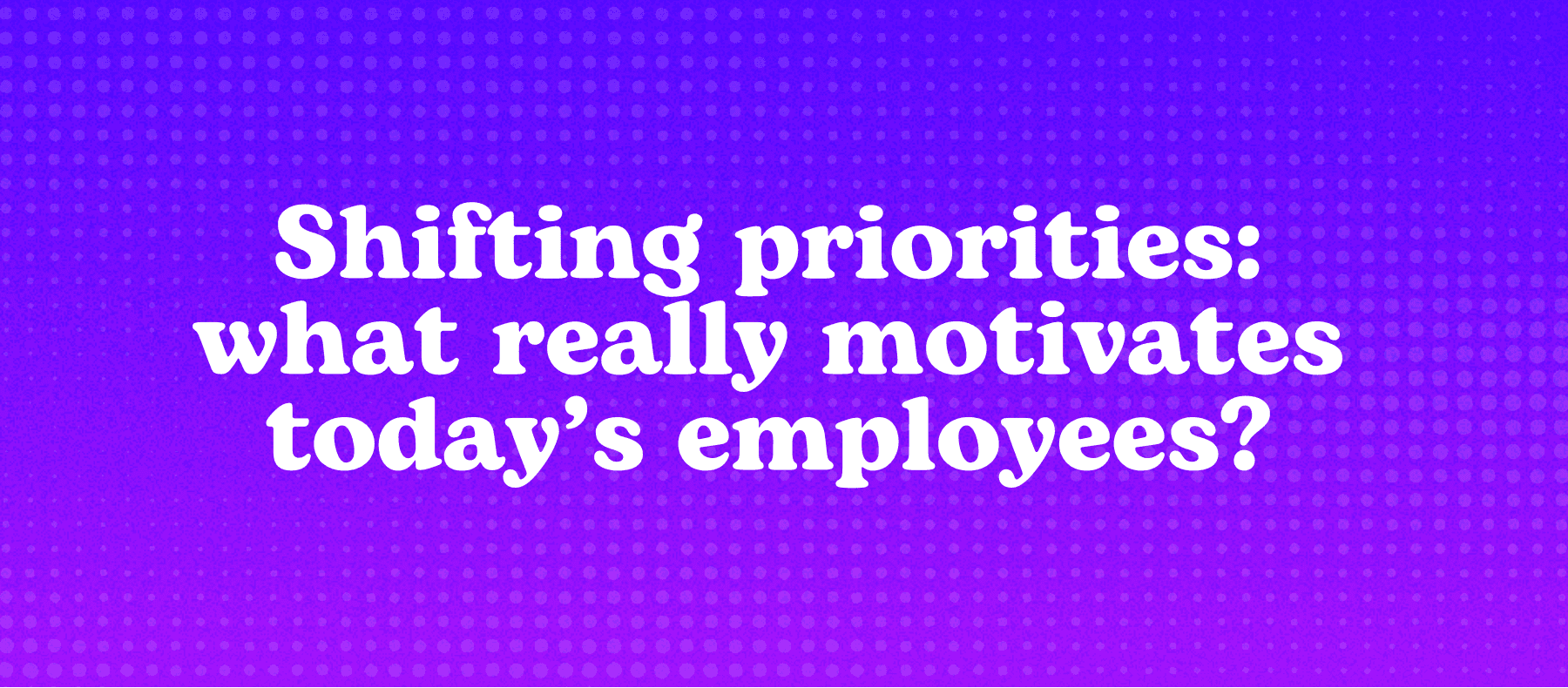Shifting priorities: what really motivates today's employees?
Free food and ping-pong tables are no longer enough to motivate employees; instead, today's workers prioritise diversity, inclusivity, flexibility, and social responsibility.
28th Apr 2024

The world of work has been undergoing a seismic shift over the past few years, and nowhere is this clearer than in the UK. A 2023 study revealed that nearly one-fifth of British people no longer consider work a significant aspect of their lives, with 61% also losing faith in the belief that hard work leads to a better life.
Generational differences, or societal shift?
With millennials and older Gen Zs now dominating the job market, it's clear that priorities and mindsets have evolved; but dismissing this shift as just ‘generational differences’ would be shortsighted. Those over the age of 45 are increasingly reevaluating their relationships with work, too, suggesting a more profound societal change that goes beyond the generation gap.
As younger generations boldly call out an unfair system that demands excessive work for little reward, they are challenging the status quo and seeking alternatives. Free food and ping-pong tables are no longer enough to motivate employees; instead, today's workers prioritise diversity, inclusivity, flexibility, and social responsibility.
Will National Insurance cuts make a difference?
The recent changes to National Insurance in the UK have sparked a heated debate, with public sentiment revealing a number of concerns ranging from the impact on personal finances, to healthcare and education.
We recently posted a video to our TikTok account about this topic, which got over 25,000 views and over 100 comments. An analysis of the comments found that financial worries took centre stage, with many expressing scepticism about the government's claims and the impact of the changes on their personal finances. Healthcare, particularly the protection of the NHS, emerged as another significant theme, reflecting broader concerns about the state of the nation's health services more generally.
These comments feed into the larger debate about the shifting priorities of the British workforce. As individuals deal with economic uncertainty, job insecurity, and the evolving nature of work, they are demanding more from their employers and their government. The desire for transparency, accountability, and a greater focus on well-being and work-life balance is understandable, and needed.
@flexa_careers If you want a better life for yourself, with a company that’s striving to be on the right side of history, click the 🔗 in my bio #futureofwork #rishisunak #worklifebalance #wfh #jobs #careertiktok #work #uk
♬ original sound - The Flexatarians 🤸♂️
Employees care about financial security, well-being, and purpose
Our TikTok debate surrounding the National Insurance changes highlights several key themes that underpin the shifting priorities of the British workforce. Financial security emerges as a primary concern, with many expressing anxiety about the impact of policy changes on their personal finances and job stability.
Well-being, both physical and mental, is another important theme. The emphasis on protecting the NHS and ensuring access to quality healthcare reflects a growing recognition of the importance of health and well-being in the workplace, too. Employers who prioritise the well-being of their staff are more likely to attract and retain top talent in this new era.
Purpose and meaning are also significant drivers of the shifting workforce priorities. As individuals re-evaluate their relationship with work, they are looking for roles and companies that align with their values and contribute positively to society. Companies that demonstrate a commitment to social responsibility, sustainability, and ethical practices are setting themselves up to thrive in this new landscape.
Navigating the future of work
As the UK navigates a new era of work, the changing priorities of the workforce offer both challenges and opportunities for employers. By listening to the voices of their people and engaging with their concerns, employers and policymakers can help to create a more responsive and inclusive work environment – which is a win for everybody.
This may involve rethinking traditional models of work, embracing flexibility, and investing in employee well-being and development. It also requires companies to be willing to engage in open and honest conversations about the issues that matter most to workers, from financial security to work-life balance.
By adapting to the shifting priorities of the workforce and creating a more people-centric approach to work, organisations can tap into the full potential of their employees and help to build a more resilient and thriving economy.
The journey ahead may be complex, but by embracing change and putting people at the heart of the workplace, the UK can navigate this transition and emerge stronger and more united than ever before.